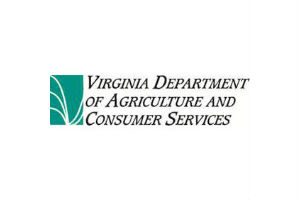
Gov. Ralph Northam declared the week to coincide with National Pollinator Week, June 17-23, which aims to educate consumers on how they can help protect pollinators.
It’s not just farmers who depend on bees and other insects to pollinate crops. One of every three bites of food we eat is thanks to honeybees, which pollinate 80 percent of U.S. grown crops. The weeklong celebration is in response to the decline in pollinator populations.
Honeybees get a lot of attention, but other vital pollinators include birds, butterflies, bats and beetles, according to the U.S. Department of Agriculture.
“Pollinators support numerous crops and garden produce across the commonwealth,” noted Tony Banks, a commodity marketing specialist with Virginia Farm Bureau Federation. “Strawberries, tomatoes, apples, cucumbers, peaches, squash and potatoes are all important to Virginia, and each one relies on pollinators.”
Anyone can provide a habitat for pollinators. The Virginia Department of Agriculture and Consumer Services says Virginians can become beekeepers, or plant pollinator gardens and window boxes. Even a small garden can help attract pollinators.
Whether you have a few pots of herbs and flowers on a patio or a stream buffer along an agricultural field, you can help pollinators perform their vital role in producing food.
The Pollinator Week website offers the following tips:
- Plant a continuous succession of flowering plants from spring through fall.
- Choose plants with assorted colors and shapes. Hummingbirds can access tubular flowers, but daisy-like flowers are best for pollinators such as bees.
- Plant native grasses, shrubs, trees and flowers.
- Reduce pesticide use whenever possible.
- Provide a water source. Birds like deeper water while butterflies prefer shallow water. Refill daily to make sure water sources do not become breeding grounds for mosquitoes.










